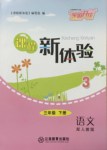题目内容
书面表达
面对繁重的学业负担,很多学生出现了不同程度的心理和身体方面的不适。鉴于此种情况,中学生应该学会放松。假如你是中学生李华,请以“How to Relax Ourselves”为题写一篇文章给《21世纪英语报》投稿。内容包括:
1.为什么要学会自我放松;
2.自我放松的途径(如看电视、上网、体育锻炼、旅游等);
3.你更喜欢哪种自我放松方式及原因。
注意:1.词数100左右;
2.文章开头已为你写好,不计入总词数。
How to Relax Ourselves
Faced with heavy learning burdens, many of us students _____________________
____________________________________________________________________________
____________________________________________________________________________
____________________________________________________________________________
____________________________________________________________________________
____________________________________________________________________________
____________________________________________________________________________
____________________________________________________________________________
____________________________________________________________________________
____________________________________________________________________________
 芝麻开花课程新体验系列答案
芝麻开花课程新体验系列答案
